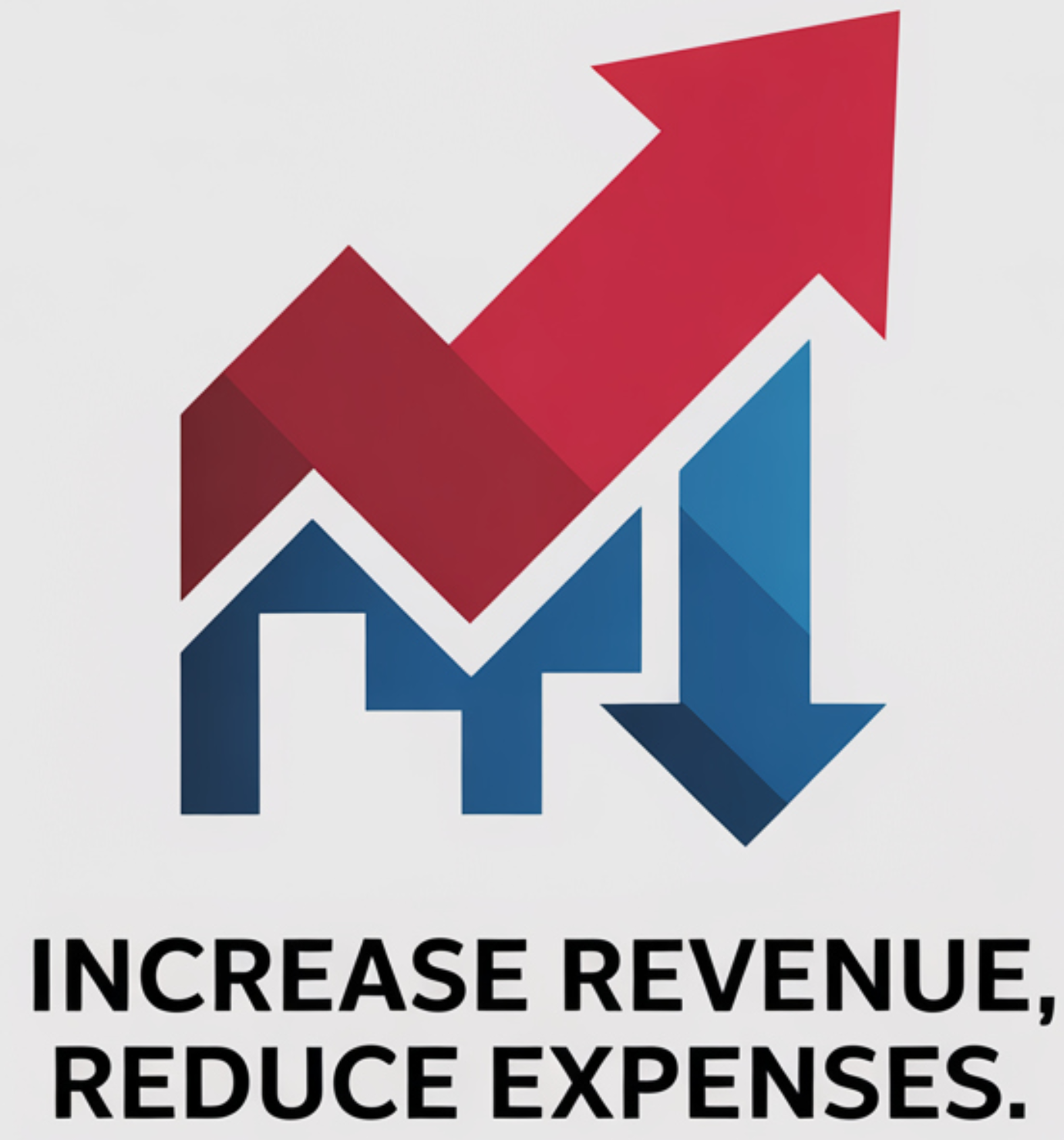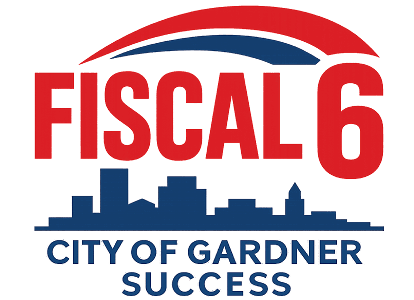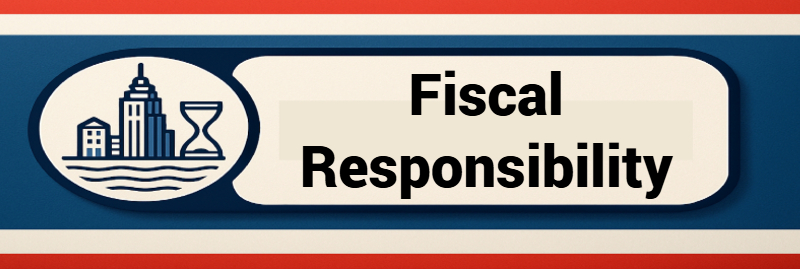Finances in the City of Gardner. An explanation of policies and spending. An explanation of the 94% Rule. How the money is handled as it goes in and goes out. The General Fund. Enterprise Accounts. The online Checkbook. Perfect Federal Audits. Third Party Audits. Listen on any device, CLICK PLAY
Question: Financially, the City of Gardner is in a pretty good spot right now.
Answer: We are. We are. I’m really happy about that.
Question: Why?
Answer: We’ve taken a very careful approach with what we’ve been doing with our spending, with our finances, and really following the policies that we have in place, too. A lot of people may not realize that for the past eight or so years, it actually was one of the projects I worked on when I was the executive aide in this office, we’ve made financial policies that the administration, the executive branch of the city’s government has to follow. Now that includes when things get put up before the city council, how our spending goes, what projects get what type of funding, everything from there. And we follow those policies, and that’s what gets us to where we are today. We have to be very careful because there’s many communities in Massachusetts that are looking for things like a Prop 2.5 override, that are looking for substantial budget cuts because they can’t afford certain things right now. And many in our area are in that spot now. And we’ve been able to avoid that here because we take that careful approach and really, you know, it’s not just double crossing your Ts and double dotting your Is, but also making sure that, yeah, we’re not guessing that the revenue is going to be too high in the budget. We’re not asking for more than what we need. We’re making sure that our one-time funds are going to one-time projects and working towards that type of cyclical look at things, because you need to be conservative in your finances, otherwise you set yourself up for failure.
Question: Tell me about your 94% rule.
Answer: So the 94% rule is what we do with revenue and our guesses in the revenue. So if you look at the budget that I have on the mayor’s page on the city’s website, one of those has our revenue, and there’s a section of that portion of the budget that’s called local receipts. Our local receipts are any revenue that we receive that’s not taxation. That’s everything from, excuse me, not real estate or property taxation. So that’s the marijuana tax that we receive, that’s the fees that we collect on the permits that people pull, that’s the fines we issue on tickets we give out, that’s user fees for things like the Greenwood Pool. There’s a lot in there. There’s about 75 to 80 different subsets of what we call local receipts, and that’s, again, just any revenue that we receive that’s not just regular taxation. And what we do with that is we take the average of the last three years that we’ve taken in in that specific account. So I want to know on motor vehicle excise tax if, rather than guessing that, oh, I’m going to make the same that I did last year, we’ll take a look back on the previous three years, find what the average are on those three years, and then take 94% of that, and that’s what I’m putting in the budget that we’re going to be getting in revenue this year. So it’s going to go higher or go lower depending on what the line item is. If it goes lower, we may go 90%, but 94%, we will not go higher than that on a revenue line item to make sure that we’re setting ourselves up, that we have at least a buffer in our revenues for the next year.
Question: So it does give you a cushion because if you do get into 100%, then there’s that extra 6% that you didn’t plan on that’ll cover, because there’s always something unexpected it’ll cover.
Answer: Correct.
Question: So from a physical perspective, the money comes into the city. Now, who handles the money coming in?
Answer: So money coming into the city goes through the city auditor’s office. Money coming out of the city goes through the city treasurer’s office, so that’s the check and the balance. And those two departments are overseen by the city council, but they work very closely with my office. As I propose the budget to the city council, any money orders that go before the city council have to initiate in the executive branch and then be put to the city council for their review and approval. So we work very closely with each other on making sure our finances stay stable, stay afloat, stay where we need them to be. So that’s kind of how things work there. And then when it gets to the city auditors, there’s various different state laws that dictate this funding has to go to this type of account. 95% of what we take in, actually it’s probably closer to 98% of what we take in has to go to what we call the general fund. Now the general fund is this big bubble term, if you will, that just says it goes to funding the city’s budget that was approved by the city council in the last year. So every time you hear the state unrestricted general government aid, that’s the money that we take in from the lottery each and every year that the state gives us in what’s called our cherry sheet. That’s just a fancy word for the state aid paper that they send us every year saying this is how much you’re getting in state aid. That goes to the general fund. Any time someone pays a bill to the city, that goes to the general fund, unless it’s restricted to different various accounts. So for instance, if you pay your water bill in the city, we have a water enterprise account. The same thing with the sewer enterprise account and the various enterprise accounts that we have. Those are special accounts that are set up for people who are paying for a specific service that not everyone receives, and that’s why those have to be separate. That’s where the other 2% comes into play that most of it will go to the general fund unless it’s restricted to those very specific accounts. But anything from the state, anything that’s paid to the city that’s not enterprise related, anything that comes into the city in just a general check that’s not restricted goes into the general fund.
Question: All right, now when the money goes out, there’s a process, and there’s actually an online checkbook.
Answer: Yep, you can find anything that’s paid for out of the city right on the city’s website. We want to be as transparent as possible. We don’t want anyone to think that there’s any confusion, anything going on with the city’s finances. So we want to make that as open and transparent to the public as possible, so that’s why we put that on the city’s website.
Question: Okay, so here’s my question. You come into office, and then something happens that never happened before, once, twice, three times, four times, perfect federal audits. Why?
Answer: Because when you’re dealing with the taxpayer’s money, you want to make sure people feel confident in the work that you’re doing, and that’s the goal for us here, is that we want people to one, know what we’re doing in city hall on their behalf each and every day, but also two, that we’re doing what we need to do with the investments that they’re making into their community. And you have to treat it like you’re a person overseeing someone’s investment account. You want to build a city that people are proud and happy to call their home, and that’s what we’re doing here. So we’ll always make sure we’re following everything to the T that we can.
Question: But what did you do differently so that it was flawless? What’s the process that’s different?
Answer: Well, first off, I want to say it’s not just me. Our city auditor, our city treasurer, our purchasing director, and our city assessor, that’s our finance team here with the five of us who meet together monthly to go over everything to make sure things are going the way they’re supposed to go, and then just having open, honest conversations when we see something that could potentially be flagged preemptively addressing it now, whether it be paperwork needs to be submitted in a more timely manner so we update the policies and procedures when it comes to reporting for grants and reimbursements and things like that. All of those things are conversations that we’ve had, and it’s the team that we really have here at the City.
Question: Now, you used the word preemptive, which is another word for proactive. So here we go again. We’re back to being proactive. So I mean, is that the central theme is just taking care of problems before they happen?
Answer: Yeah, because if you can deal with it, it’s 10 times easier to deal with a problem before it happens than after. So we always try to pre-guess what any problem is. In fact, one of the questions we ask in almost every meeting we have is, what problems do you foresee that could happen with this, and let’s try to address those now so we don’t have to later.
Question: All right. So then you have less problems later.
Answer: Exactly.
Question: All right. So we’re beginning to uncover how you do things a little bit. So when it comes to audits, there’s also third-party audits that come in and check on the city. How does the city do with those?
Answer: Well, those are required actually by federal law, and we actually have to send those audits to the White House Office of Budget Management to make sure that they meet their minimum standards and qualifications and generally accepted accounting practices is the term that they use. I mean, we’ve cleared all of those as well, too. They’ll make suggestions here and there in terms of, you know, update your timestamp here or consider going digital here, but we’ve cleared all of the—we haven’t gotten any findings other than small recommendations here and there. In some years, we haven’t even gotten those. It’s been pretty good, and again, it’s the same thing. It’s a testament to the team that we have here and the process that we’ve established.
Question: So if you were to sum it up, would you say it’s accurate to say that by attempting to avoid future problems, you avoid future problems?
Answer: Oh, yeah. If you fail to plan, you plan to fail, and I think it’s the old adage that’s with that, too. So why not make the plan ahead of time?
Cleaning up the Books – Being careful about spending including procurement requirements – purchasing and auditing – the 6 signature process – choices of how to use one-time funds so positions are not left unfunded – Listen on any device. CLICK PLAY
Question: We talked earlier about how you’re often here in the office working your tail off. And one of the things you focused on was cleaning up the books. And you went to the city council and you said, you know what, we’ve got this loan order that’s we borrowed something over this and we got X amount here and that’s sitting there and we got this one over here. Tell us about that cleaning up the books.
Answer: Yeah, it was just, I like it. Exactly. You just said cleaning up the books. There were a lot of loan orders that the city had taken out over the last 15 years that had never been closed out, but the products were done. So working with the city auditor’s office, we cleaned them up. We got the loans closed out. And then the right, I guess we just took them off of our balance sheet that we had to carry forward and really just made it so that it was easier for us when we went through our auditing process. We cleaned up our own balance sheet so that we didn’t have to carry that liability anymore. And it was something that just needed to be done and had been put on the back burner and we finally just got it off the back burner and did the job.
Question: So no more sloppy.
Answer: Yeah, that’s one way to put it, that’s one way to put it, but it was just, we realigned our focuses. How’s that?
Question: All right. So you have a budget process.
Answer: Yes.
Question: How come the increases in Gardner are smaller than other similar cities?
Answer: I really think it’s because of the 94% rule that I have that we’ve talked about earlier. It’s that you have to find ways to live within your means and be conservative. And if you get surprised in the end, great. If not, then you’ve already set yourself up with the right barriers and protections that you need that you’re not going to be too surprised and you can handle any unexpected expenses that’ll come along the way.
Question: All right. Now, are the City Hall employees satisfied with the quality of the toilet paper?
Answer: I remember that interview. Yes, they are. That was more just saying that the state does have bidding laws that we have to follow and different purchasing laws. So, for instance, Chapter 30B of the General Laws requires us not to buy brand name items. So you’re not going to see Kleenex and you’re not going to see different other brand name items that are here. You’re going to see a lot of generic things from there and that’s why we have the contract that we have with WB Mason that we went out to bid for and obtained with them to make sure that we’re meeting all of these procurement requirements. And those are all things that are outlined by the General Laws.
Question: Well, I’m just using it as an example of how cheap you are with the taxpayers’ money. The taxpayers like that. Give me some other examples of how you’re kind of cheap when it comes to buying stuff.
Answer: I mean, you have to be careful. There’s laws that we have to follow and there’s people who we are accountable to and we remember that in every purchase and decision that we make.
Question: You’ve got a pretty good purchasing agent too.
Answer: Yeah, yeah. Honestly, our purchasing department is very strong. Josh Cormier, our director, and Amy Levasseur, the executive assistant in there, do an excellent job with the work that they do.
Question: And the auditor doesn’t let a thing go past him.
Answer: No. Every contract that we have in the city, I’ll put it this way, every contract that we have in the city and every change order that may come with that contract has six signatures that are put on that document to make sure everyone is checking everything. It starts with the department head who’s overseeing that project to make sure that it meets their standards for what they actually need. Then it goes to the purchasing agent to make sure that anything with that contract complies with all required laws that we have to follow in terms of the General Laws, in terms of bidding, in terms of getting quotes, in terms of everything like that. Once it’s signed off from the purchasing agent, it then goes to the city solicitor to make sure that everything in that contract meets all the legal requirements outside of those that are overseen by the purchasing department. Then it goes to the city auditor who makes sure that the funding source for that project is there and makes sure everything is done correctly and the money is there and the money is already secured. After it goes to the city auditor, it goes to the vendor. The vendor then makes sure that everything that’s in that contract meets with the requirements that they’re supposed to go to. After the vendor signs it, it comes to me and I am the final signature on that one to make sure that everything meets the goals of the city as a whole and that everyone’s checked off everything and everything’s done the right way. There’s six steps that actually go through to make sure every contract that the city is signing and every change order to that contract that may come is all done the correct way. The process is done, the money is there, the money is being accounted for the correct way and everything’s being done correctly.
Question: But then there are choices. There are choices of how to spend, for example, federal ARPA funds. You could use it to fund a teaching position, which then goes away, or you could do it the way you did it. Explain the way you did it and why.
Answer: I mean, I take it the same way that we take our free cash policies whenever we get any grant funding, whether it’s the ARPA funds, the CARES funds, the ESSER funds, or whatever other acronym the federal government decided to give to another bill that they had. You don’t fund salaries with one-time money. When you fund positions and salaries like that with money that you know is going to go away, you set yourself up for failure because that’s money that you then have to pick up later on. And so by using the funding we received for capital projects and the one-time funds that we had put off for a while, the one-time projects we had put off for a while, it made it so that we could use our regular tax dollars and our regular general fund operating funds that we receive every year that we know are annual revenues versus one-time revenues towards our staffing levels and take that funding that was going to go out of that annual revenue, that consistent revenue, annual revenue, to those one-time projects, put that back into our annual operating costs, and that’s how we’ve been able to invest in our people here in Gardiner while still investing in our capital projects.
Intelligent Decisions and Observant Staff – Electric Rates – Making the Right Decision at the right time – Overbilling of LED lights corrected and City received $250k back -Listen on any device, CLICK PLAY.
Question: Sometimes it’s just about making intelligent decisions. A couple years ago electric rates were going through the roof. Now you made a decision at the time to go with a one-year extension or contract, if you will, with the outside company. The following year when they went down again, you saved Gardner residents millions of dollars. How did you know to do that?
Answer: That one kept me up at night for a while, actually, because we saw how much electrical increases were going up that year because that was right when Russia invaded Ukraine. There was a lot of utility issues at the time. There were a lot of energy concerns at the time. The market was going all over the place. So I remember I was like that’s high. I remember seeing the initial number and I was like that’s high. That’s a lot higher than I was hoping for. So we made the executive a decision to skip the three-year contract that we had always given out and go with just a one-year just to see how we were like in a year. And if it didn’t go well then we’d go with what we had to go in the end. But there was just some, you know, talk that the market was going to go down once everything had settled. Because everything was just so volatile at the time that we just needed to see where things landed at. And that’s exactly what we did and it worked out for us in the long term. And it was actually, if we had we signed that three-year deal, it would have been financially just detrimental to the people who lived here.
Question: How many residents are there in Gardner?
Answer: 21,000.
Question: All right. How many households, roughly?
Answer: Oh, that’s a good question. That one I don’t have the number off the top of my head.
Question: Approximately 8,000 to 10,000.
Answer: Yeah. All right. So eight to ten thousand electric bills. And that’s just houses. That’s not even the residential, that’s not even the commercial properties, the industrial properties. And other places like Heywood Hospital that are our largest employer but use a lot more electricity.
Question: Each of them save 20 to 40 bucks a month. With that decision. Yeah. That’s how I got the millions of dollars. Yeah. So you literally saved them millions of dollars. So I know it’s hard to grasp because it’s not money that you’re working with the city. But literally it’s actually true. Now you also discovered some overbilling at one point regarding LED lights. Is the city getting that money back?
Answer: We are. I’m going to give a shout out to our city engineer Rob Oliva on this one. He was reviewing the electric bills we received for our streetlights in the city. Back in 2019 the city purchased the streetlights. So the streetlights in the city are our own and not owned by National Grid. And then we did an LED conversion where all the light bulbs were replaced from the former older type of light bulbs to all LED lights. And what happens in that process is the LED lights use less electricity. So we knew our bills would go down. But National Grid also has a separate rate that the LED light bulbs are billed at as an incentive for more people to use LED lights. And our city engineer was going through the bills one day because the payments were a little higher than we were expecting. And went through and realized in the fine print that we were still getting billed at the non LED rate and not the LED rate. But the bills had gone down because again they’re just general electricity usage had gone down because of different light bulbs. So working with National Grid we were able to get back payments back to the time that the LED conversion happened. And the city had overpaid by about $250,000 in just the wrong rate being billed to the city. So we were able to get a check from National Grid back for that amount. And that’s since been paid and in the city’s general funds the city’s been reimbursed those overpayments.

Other Revenue Sources and Expense Reductions – .75% Hotel and Meals Tax – Route 140 custody change to the State of Massachusetts – Listen on any device, CLICK PLAY.
Question: Mayor Nicholson, nobody likes property taxes, we all know that, but there are only a limited number of other revenue sources. You made a decision to opt into the 0.75% meals tax, can you tell us about that?
Answer: So, that was a proposal by City Councilor Paul Tassone, but I did support it fully. And the reason why I supported it and signed it in the end, and it’s actually something that’s bringing in way more revenue than we expected in Gardner, is because there’s only so much we can, we’re limited by Proposition 2 1/2 where we can raise in property taxes every year. And even still, you have to remember that people are going through inflationary times and everything that they’re doing, their grocery stores, their gas bills, their, you know, filling up at the gas tank and everything in between. But having things like the hotels excise tax and the meals excise tax make it so that we’re charging not just Gardner residents, but also those that visit the city. There are people who come into Gardner who drive on our streets to get to the restaurants. There are people who come into Gardner who utilize some of the parks and services that we have that don’t live here. And so, it’s making it so there was a more equitable playing field in that we are having some revenue come in from those people who do visit the city at a rate that’s still low enough to not discourage them from coming into the city, but make it just so that there’s some parity and equity that’s in there too. To get for every $100 you spend on a pre-cooked meal, 75 cents of that is coming to the city as your tax, on the meals tax. Now again, I want to reiterate that for every $100 you spend, 75 cents will come to the city. Now if you’re buying a burger at Burger King, you’re not paying $100. So the impact on that is minimal. Even if you’re sitting down at the Ale House or at Williams and you’re getting a meal, you’re not going to hit that $100 per person sitting there. So the impact is really minimal, but we’ve taken in close to half a million dollars in revenue in just the meals tax alone. What that opens up is less of a burden we’re placing on our real estate tax payers, in that we can cover some functions without having to dip fully into our real estate taxes that we have here in Gardner. It opens up opportunities for us to get on that backlog of projects that we have, to get on that strong financial footing that we have so that we’re not seeing things like we’re seeing in other communities in the area around Massachusetts that are looking for new creative ways to fund things that require a vote at the ballot for an override, require a debt exclusion, require these various different things because we’ve been able to come up with that short-term plan to come up with a short-term implementation with long-term solutions with it.
Questions: Okay. Expenses, revenues, if you can cut expenses, that helps too, right?
Answer: Yeah.
Question: So tell us about Route 140 and your thought there.
Answer: That was something we’ve been in conversation with the state for a while. The state owned everything in 140 and was in charge of its maintenance and repairs for everything north of Green Street and south of the, excuse me, north of Winchendon and south of Green Street. But that area between Green Street and the Winchendon town border, the city was in charge of maintaining and plowing and doing all the operations for that. So we sat with MassDOT and said, why does this make sense? If you control before and after, why don’t we give you back custodianship of Route 140 in this area? And it was just because it made sense. Why take care of just this strip when everything around it on the same street is done by the state? So we were able to work with the state and give them full custodianship of Route 140 so that that’s fully under their control.
Question:And that saves the city money.
Answer: Absolutely.
Third Party Grantwriter – 50 grand brings in 50 million -Impact on Taxpayers and ability to fund needed infrastructure projects. Listen on any device, CLICK PLAY
Question: All right. Now, let’s talk about the big ticket decision that you made a proposal to the Gardner City Council to go and get a third-party firm to go after grants, initial budget was approved for like 60 grand, spent like 50 grand of it right away, and then you took in just a little bit of money, right?
Answer: Yes. We took in quite a little bit of money if you want to talk about it that way. We’ve taken in about $50 million since we hired grant writers for the city.
Question: All right. So you spent 50,000 and you took in only 50 million?
Answer: I think we had a great return on investment.
Question: It’s like hundreds of times the investment.
Answer: Yeah. Yeah.
Question: This does not happen.
Answer: No, but when you have the dedicated people who are there to do it, it’s night and day. And the thing is the staff here in City Hall have jobs to do, and if they’re doing their jobs correctly, they really have limited time to go out and write the extra grant applications that are there for the projects that they’re working on. They have time to oversee the projects that are there, and they have time to do the reporting for it, but the grant applications can be timely, can be cumbersome, so we’ve hired these grant writers for the city to take that off of our staff’s plate so they can focus more on the fine-tooth details of their projects and really use that as a pipeline for the project that we have moving forward. So we’ll send them the capital improvement plan, we’ll send them the projects that everyone’s working on, we’ll send them everyone’s goals to the departments, and then our grant writers go through and try to find those projects that are there and what grant applications fit those and work through those to try to get funding and make those projects a reality. And what that does is it creates new partnerships so that we have a pipeline that we can send those to. So if a department wants to see this type of project or programming or something like that happen, they say, hey, this is what we’d like to do to Keller Partners and Company, our grant writing firm down in Washington, for them to just write it and then if we get the surprise in the end, now they just have to worry about implementation, not worry about how to get there.
Question: Okay. $50 million, right?
Answer: Yeah.
Question: What’s the city’s budget in a year?
Answer: Around $80 million. Okay. $90 million, excuse me.
Question: Okay. So more than half of the city’s budget in one year, the city’s taking in a grant. So how does that help the taxpayer?
Answer: Well it gets it out of the city’s budget, that’s the thing, is that it’s not like we’re funding our city’s budget with grant funds. That makes it so that we can get to those one-time projects, we can improve our infrastructure, we can improve our capital projects, our buildings, our roads, our sidewalks, our parks, our playgrounds and everything in between. All of those things are things that we’re now able to get to, one, on a more timely basis and two, without diluting the services we offer for the city because we can keep the general fund dollars that we have going towards those services to maintain a level of service that our citizens deserve and getting to the capital projects that would normally be put on the back burner and bringing them back up to the front.






